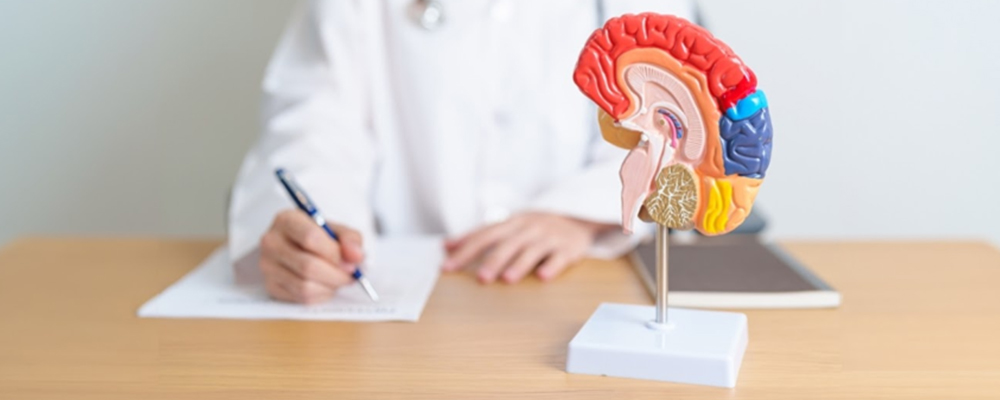Top 5 Most Common Neurological Disorders Explained
Posted On: August 12, 2025 by Robert Matijevich

Dizziness? Muscle weakness? Coordination problems? If you have these symptoms, you should be checked for neurological disorders. The brain, spinal cord, and nerves represent our nervous system. And this is the control center for all body functions. Neurological diseases are a wide range of diseases that affect the brain, spinal cord, and peripheral nervous system. They can also manifest as memory problems, seizures, etc. The disease cannot be neglected. At the first signs, you should consult a doctor so that they can prescribe treatment. Let’s look at the symptoms of neurological disorders so that you know the most important things.
The Nervous System as the Control Center of the Body
The nervous system is a complex mechanism responsible for all processes in our body. It ensures the transfer of information between different parts of the body and the brain. The human nervous system controls internal organs, maintains balance, and is responsible for the reaction to external and internal stimuli. In addition, it participates in the formation of our emotions, behavior, and general condition. You see how important its proper functioning is. This is the key to our health and activity.
Why Do Problems with the Nervous System Arise?
Many factors provoke problems with the nervous system, including stress, infections, injuries, inflammatory processes, diabetes, autoimmune diseases, intoxications, age-related changes, and hereditary characteristics. It is necessary to monitor your condition in order to take appropriate measures. A healthy nervous system is the key to emotional stability, clarity of mind, and good health for many years.
5 Most Common Neurological Disorders
Disruptions in the nervous system are very dangerous. This can lead to a wide range of diseases and disorders. The central part (brain and spinal cord) or the peripheral part (nerves connecting the brain and organs) can be affected. And the symptoms, accordingly, will differ. For example, if the peripheral nervous system is affected, a person may feel numbness, tingling, limb weakness, decreased sensitivity, or even impaired motor skills. If the brain is affected, a person may suffer from depression, memory or concentration impairment, and anxiety disorders. Sometimes, even psychosis occurs.
Damage to the autonomic nervous system can cause digestive and sleep disorders, heart problems, and high blood pressure. Acute damage to the nervous system can lead to strokes, injuries, and inflammation, as well as loss of motor and cognitive functions, paralysis, or even coma.
Let’s examine the main symptoms of neurological disorders so that you can identify them in yourself or a loved one and begin treatment immediately.
Headache
This is one of the most common diseases of the nervous system. Around 50% of adults worldwide have had headaches in the last year. From mild tension in the temples or forehead to debilitating long migraines, such conditions are familiar to every second person. Of course, if you experience pain only occasionally, most likely, there is nothing to worry about. But long-term pain indicates a problem. Perhaps you have a hidden neurological disease.
You should be alerted by a constant headache, sensitivity to light, sound, or smells, vomiting or nausea, or visual or sensory sensations before the onset of a headache. A bad sign is a headache accompanied by confusion or chronic headaches that intensify over time. It is important to see a doctor in time. Most likely, a specialist will prescribe you medication therapy, as well as recommend lifestyle changes and therapy methods aimed at relieving pain.
Epilepsy
During 2021 and 2022, about 2.9 million US adults 18 and older reported having active epilepsy. This is a severe, chronic condition characterized by recurrent seizures caused by abnormal brain activity. If left untreated, it can profoundly impact a person’s life. The patient may experience sudden and uncontrollable jerking movements, loss of consciousness, temporary confusion, or a frozen gaze. The person suffers from fear or déjà vu.
Treatment for epilepsy includes anticonvulsants, vagus nerve stimulation, or surgery. Choosing a competent doctor who can help choose the best treatment is important.
Parkinson’s Disease
Parkinson’s disease is a chronic neurodegenerative disease that affects the patient’s motor functions. The main symptoms are tremor, muscle stiffness, slowness of movement, and gait disturbance. Parkinson’s disease is more common in older people but can also develop at a younger age. It is caused by the loss of neurons that produce dopamine. As a result, a person’s movement and coordination are impaired.
The first thing that should alert you is tremor, even at rest. A change in speech or writing is also possible. As a rule, one of the first signs is constant trembling of one hand and loss of balance and posture. Most likely, a specialist will prescribe drug therapy, deep brain stimulation (DBS), and physical therapy.
Alzheimer’s Disease
This is the most common form of dementia, a progressive neurodegenerative disease that primarily affects memory, thinking, and behavior. It especially often affects older adults. This disease disrupts the normal course of life; a person needs care because it is difficult for them to perform everyday tasks and they suffer from confusion of time perception. What should be alarming? This is an alarming sign if a person often forgets names or recent events and has difficulty solving simple everyday tasks and planning their time. But the final diagnosis, of course, can only be made by a doctor. This disease is incurable, but high-quality early drug treatment, cognitive therapy, and support can improve the quality of life of patients.
Stroke
There are almost 12 million new strokes each year. This dangerous disease occurs when the blood supply to the brain is disrupted, which can lead to damage. A person may experience sudden weakness or numbness on one side of the body, difficulty speaking, or difficulty understanding speech. Possible loss of balance or coordination, vision, or double vision. It is important to pay attention to warning signs. If your face has become asymmetrical, you feel weakness in your arm, and your speech has become incoherent, seek help immediately! Stroke should be treated as quickly as possible. Most likely, a specialist will prescribe thrombolytic drugs or surgery. You will also need emergency rehabilitation services.
Conclusions
Neurological disorders are different, but their signs can be pretty similar. You should pay special attention to your health if you notice weakness or numbness in the limbs, headaches, loss of balance and coordination, fainting, seizures, decreased cognitive function, or memory lapses. Don’t put off treatment for later! Our physical therapy specialists have vast experience and are ready to provide all the necessary. We welcome your requests!

